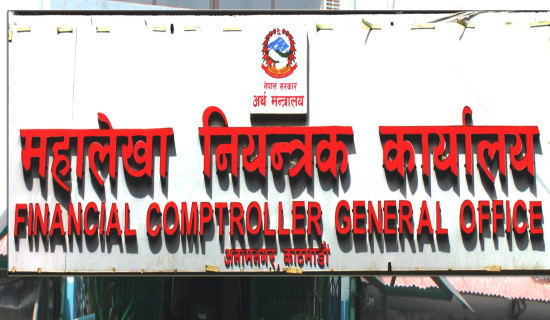- Tuesday, 16 December 2025
Promote Electric Vehicles
Bini Dahal
If we think of the choking air quality that put Kathmandu on the top list of the most polluted cities in the world, we are forced to contemplate ways to reduce the level of pollution. And one such alternative could be the promotion of electric vehicles (EVs). This technology has emerged as a perfect solution to bring down the massive amount of greenhouse gases emitted by vehicles run on fossil fuels.
However, for a country like Nepal, the application of this technology has not been as effective as it should have been. This is more saddening at a point where the country has internationally shown its commitment to attaining net zero emissions by 2045. The nation made this pledge at the 26th United Nations Framework Convention on Climate Change (COP26). In line with this, the country also envisages decarbonising its transportation sector by 2030. The government has targeted to increase the usage of EVs to 25 per cent in 2025 and 90 per cent in 2030. This is really a good plan.
But the main policy blockade right now revolves around taxes put on the electric vehicles. Over the years, successive governments have come up with a number of tax initiatives for such eco-friendly vehicles. There was a time when the customs duties had been reduced just so that people would be encouraged to go for electric vehicles. While this initiative was successful, to some extent, in recent times, the government has been found imposing high taxes on EVs. In the latest budget for the fiscal year 2024/25, customs duties on electric vehicles have gone up by 10 per cent. This move is an indication of the government’s effort to increase the country’s revenue collection.
But the point to be noted is that climate change is a really sensitive issue and amidst growing environmental challenges, lowering greenhouse gas emissions should have been the government’s priority. Electric vehicles not only help tackle the issue of climate change but are equally important to cut down the excessive dependency on fossil fuels. A significant portion of Nepal’s treasury is spent on importing diesel and petrol from India. The larger proportion of the same import has led us to a widening trade deficit with the southern neighbour. According to the Nepal Electricity Authority (NEA), it is estimated that, through the use of EV, Nepal reduces oil import costs by US$ 22 million a year.
And amidst the booming hydroelectricity sector, the country holds immense opportunities to install charging stations. These stations can run on the surplus domestic electricity, further promoting a cleaner and greener environment. Understanding the benefits electric vehicles can provide to the environment and the nation’s economy, the government must proactively adopt necessary policy measures. Such policy measures must be encouraging for people to switch to EVs. The government needs to join hands with other stakeholders, including the private sector, for setting up adequate charging stations across the nation.
Raising public awareness and creating a conducive environment for the promotion of sale and purchase of electric vehicles is a must. No doubt, Nepal holds immense potential to become an exemplary country, focusing on clean and green energy use. The nation must seek financial and technical assistance from foreign countries and international organisations to convert this opportunity into reality. However, the first step has to be concentrated on policy reforms, strengthening and implementation. Only then can we move on the path of a greener future.
















